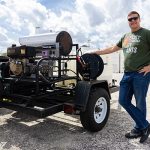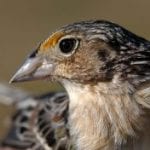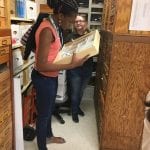Research Area(s)
Dr. King’s primary interests are in community ecology, invasion biology, social insects, and conservation science aimed at understanding the ecosystem services of insects.
Research
In my lab we study community assembly and species invasions at multiple scales in the context of natural and human-altered landscapes. One of the overarching themes of the research program is to understand the fundamental mechanisms that drive species invasions associated with land-use changes. In so doing, we hope to improve our understanding of the consequences of land-use change and how events such as species invasions can be prevented or their impacts can be diminished. To accomplish all of this, we use experiments and comparative approaches to better understand the ecology of one of the most abundant groups of organisms on earth, the insects.
Publications
- King, J.R. 2010. Size-abundance relationships in Florida ant communities reveal how social insects break the energetic equivalence rule. Ecological Entomology 35: 287-298.
- King, J.R., W.R. Tschinkel, and K.G. Ross. 2009. A case study of human exacerbation of the invasive species problem: transport and establishment of polygyne fire ants in Tallahassee, Florida, USA. Biological Invasions 11: 373-377.
- King, J.R. and W.R. Tschinkel. 2008. Experimental evidence that human impacts drive fire ant invasions and ecological change. Proceedings of the National Academy of Science, USA. 105: 20339-20343.
- King, J.R. 2007. Patterns of co-occurrence and body size overlap among ants in Florida’s upland ecosystems. Annales Zoologici Fennici 44: 189-201.
- King, J.R. and S.D. Porter. 2007. Body size, colony size, abundance, and ecological impact of exotic ants in Florida’s upland ecosystems. Evolutionary Ecology Research 9: 757-774.
- King, J.R. and J.C. Trager. 2007. Natural history of the slave making ant, Polyergus lucidus, sensu lato and its three Formica pallidefulva group hosts in northern Florida. Journal of Insect Science 7: 42.
- King, J.R. and W.R. Tschinkel. 2007. Range expansion and local population increase of the exotic ant, Pheidole obscurithorax, in the southeastern United States. Florida Entomologist 90: 435-439.
- Tschinkel, W.R. and J.R. King. 2007. Targeted removal of ant colonies in ecological experiments, using hot water. Journal of Insect Science 7: 41.
- King, J.R. and W.R. Tschinkel. 2006. Experimental evidence that the introduced fire ant, Solenopsis invicta, does not competitively suppress co-occurring ants in a disturbed habitat. Journal of Animal Ecology 75: 1370-1378.



